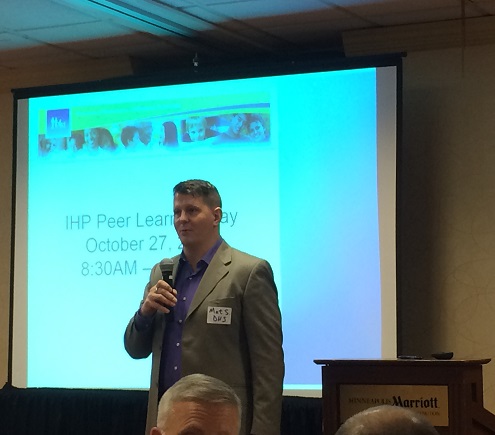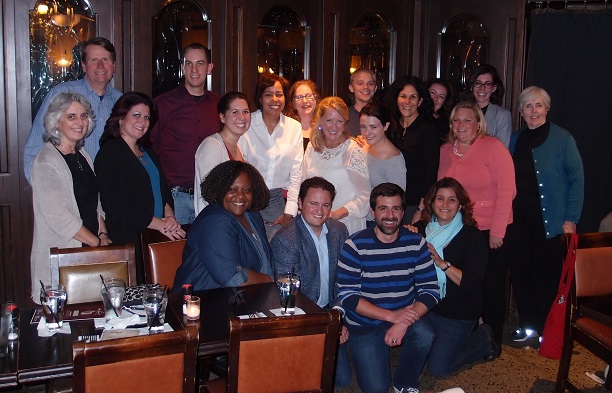NJ Medicaid ACOs and Look-alikes Learn From Minnesota
On October 26-28 2015, members of New Jersey’s QI Collaborative travelled to Minneapolis to take part in the annual QI Collaborative Learning Trip. Funded by The Nicholson Foundation, the QI Collaborative is a learning and support network for New Jersey’s Medicaid ACOs and look-alikes, which provides technical assistance, training, and advocacy. In keeping with this mission, the Learning Trips are designed to expose ACO leaders in New Jersey to best practice models in other states, and to spur stronger networking and collaboration.
The Collaborative came to Minneapolis to attend the annual IHP Peer Learning Day and learn about their journey in developing Minnesota’s Medicaid accountable payment model, called IHPs (or Integrated Health Partnerships). Though the specific compositions of Minnesota’s IHPs and New Jersey’s ACOs and the laws governing them differ, the two models share a common goal – reducing the total cost of care for Medicaid patients while maintaining or improving the quality of care. The groups from Minnesota and New Jersey came together to “share our successes and share our challenges,” according to Mat Spaan, manager of health care delivery and payment reform at the Minnesota Department of Human Services.The event mixed formal presentations and panel discussions with small group break-out sessions and networking events. Issues discussed included hiring and training staff, measuring success, navigating the legal environment, integrating mental health and substance abuse treatment into primary care, and payment strategies for funding the ACO/IHP organizations. A critical difference between the states is that Minnesota supports the IHPs by funding their infrastructure and up-front costs, and Managed Care Organizations provide shared savings. In New Jersey, the ACOs and look-alikes must raise their own funds to support their operations.
Another issue that several participants highlighted was the importance of good, actionable, real-time data in order to properly coordinate care. In both Minnesota and New Jersey, complicated mixes of data sets and privacy laws often present barriers to ACOs/IHPs in getting the data they need in time to coordinate useful interventions.
Participants swapped ideas for how the ACO/IHP infrastructure might be used to help achieve the “triple aim” in healthcare – improving the health of the population and improving the experience of the patients while lowering costs. Renee Levesque of Hennepin Health stressed that ACO/IHP shared savings provide “opportunities for flexibility and creative thinking.” For instance, Minneapolis-based IHP Hennepin Health used funds to invest in housing assistance – an expense usually thought of as “outside the box” for traditional health care spending, but one which has a dramatic positive impact on individual health outcomes and costs.
In the final day’s session, leaders of Minnesota Community Measurement and the Institute for Clinical System Improvement gave presentations on their work. The two organizations support Minnesota’s IHPs by collecting data, providing guidelines on best practice care, and bringing together stakeholders to improve the Medicaid health delivery system.
Learn more:
Learn more about the QI Collaborative.


